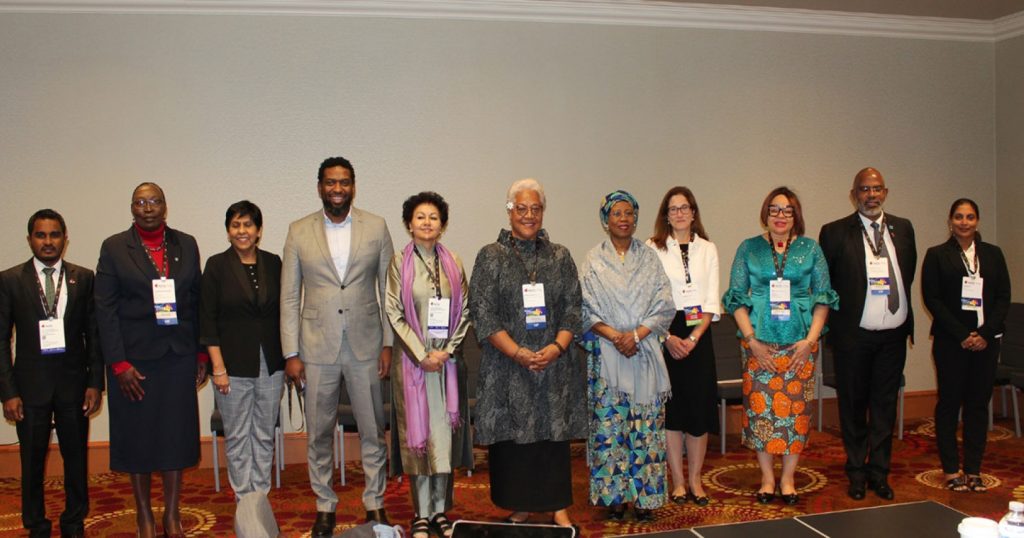PCF10: Ministerial Roundtable

A ministerial roundtable session, co-chaired by the Prime Minister of Samoa and COL’s President and CEO, generated a lively discussion on how governments have addressed educational disruptions during the Covid–19 pandemic. Nine education ministers from the Commonwealth joined in the discussion. In fact, never before have this many education ministers attended a Pan-Commonwealth Forum. Together, the roundtable session revolved around open distance and flexible learning (ODFL) and building resilience and technological innovation while being inclusive. Other themes included improved access to education through ODL, service schools and how each and every community is vital to educational growth. How can technology address the challenges of distance learning and the new normal? — a reference to the Covid–19 aftermath. As overcrowding in classrooms is a global crisis, ODL can help ease these problems to ensure no student is left behind. Introducing new programmes and new ways to ensure student engagement was also discussed. The subject of ODL remained front-and-centre, as ministers from across the Commonwealth examined the many inherent benefits of ODL in a world where Covid–19 is still a major global health emergency. These included how excellence in distance education minimises one-on-one classroom contact, which can lead to increased risk of infection and where many in developing countries are still unvaccinated against the coronavirus. In closing, COL has been tasked with several actions — capacity building of teachers, developing skills for livelihoods, enhancing the quality ODL, promoting the well-being of students and empowering parents to strengthen the educational ecosystem. The ministers also endorsed the Calgary Communique and its six collective actions prioritising the challenges of climate change.

